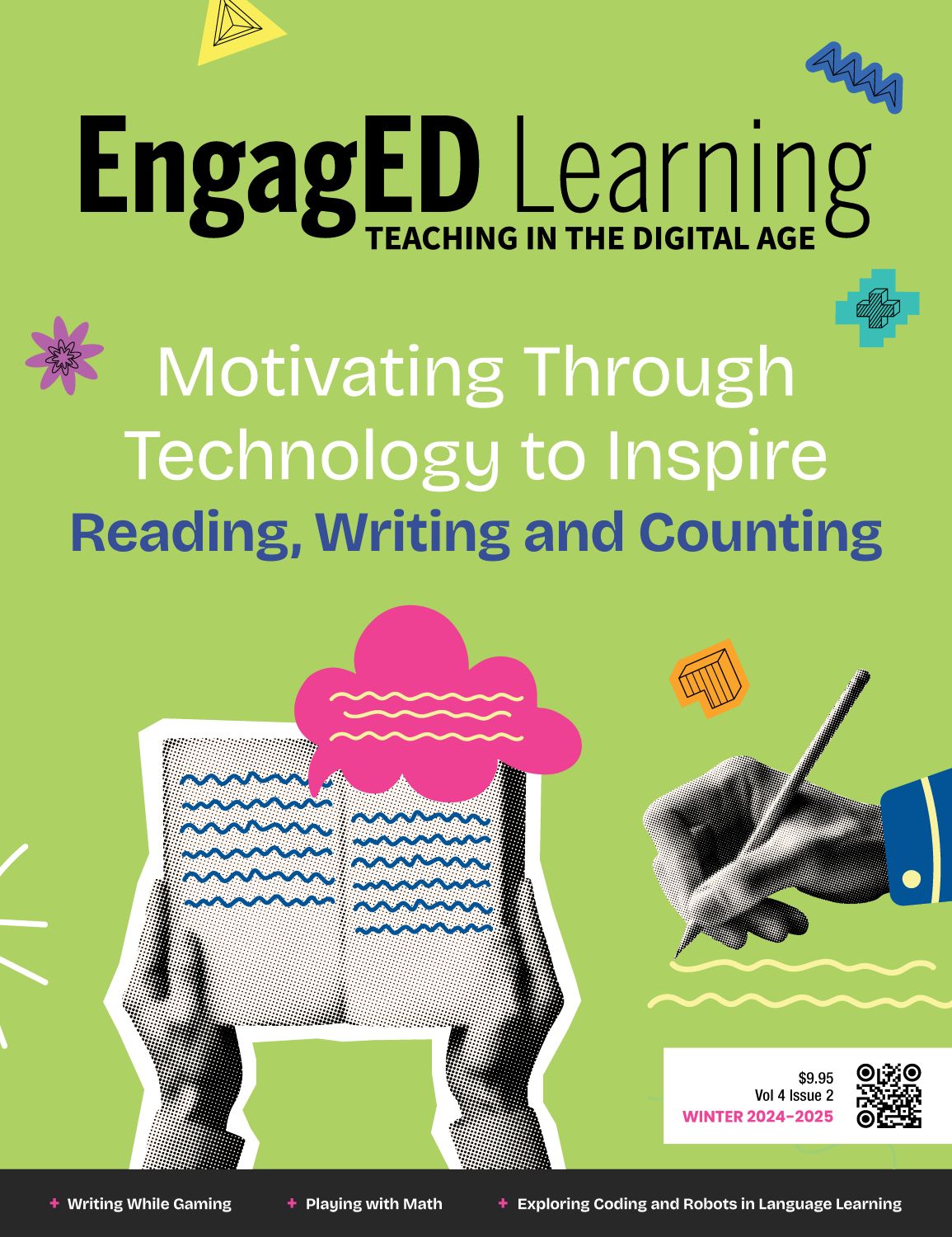A Word From Us
Sometimes, returning to the basics is crucial. In an ever- changing world, the ability to learn how to learn is increasingly important, and the fundamental skills of reading, writing, and counting remain essential for every child.
Indeed, literacy and numeracy are used to
acquire, construct and communicate
understanding
of the content in
all subjects and disciplines and at all
grade levels (Alberta Education, 2024). It
is all the more important to focus on these aspects to
establish a solid foundation.
Difficulties with reading and writing can lead to challenges in other school subjects, leading to failure and discouragement. As Anne Lessard, Dean of the Faculty of Education at the Université
de Sherbrooke, states: “One of the most important factors in preventing school dropout is
the ability to read.”
What’s more, according to Statistics Canada, “there is little doubt in the economics literature that literacy and numeracy
skills contribute to individuals’ economic and social well-being.”
In short, these skills are essential for achieving career goals, personal development and social advancement.
On the other hand, difficulty in mastering digital tools is also
a form of illiteracy. So why not address this issue by integrating the learning of reading, writing, and mathematics through the thoughtful use of digital tools? Especially since these tools, when used to enhance or support a clear pedagogical intention, can become a powerful lever for academic success.
Indeed, digital tools offer many possibilities for developing
skills such as communication
and collaboration. They can
also make learning situations more interactive and authentic, diversify forms of feedback, create multidisciplinary contexts, and so on. They allow for differentiated learning paths, simplifying the inclusion of students with special needs or difficulties.
In this issue of the magazine, we wanted to bring together examples of innovative teaching practices and propose applications that can meet the needs of all students, have the potential to engage them in their learning and maintain their motivation.
Mastering reading, writing, mathematics, and digital tools is not just about acquiring academic skills; it’s the key to long-term success.
Martine Rioux, Chief-Editor
@riomarti
December 2024 – Volume 4, issue 2
Writers
Stacy Anne Allen, Amélie Bélanger, Craig Bullett, Laurence Capus, Caroline Chaput, Laurie Couture, Laurent Di Pasquale, Louis-Philippe Duchesne, Tony Jenniss, François Lake, Sarah Anne Leroux, Audrey McLaren, Audrey Miller, Julie Noël, Susan Parks, Pascual Pérez-Paredes, Guillaume Prairie, Sabrina Priego, Martine Rioux, Mandi Tolen
Publisher
Audrey Miller
Chief-Editor
Martine Rioux
Editorial Assistant
Karla Mora
Development Director
Stéphanie Dionne
Translation
Nicole Arsenault, Roxanne Desforges (Pure&Applied), Martine Rioux
Additional Proofreading
Nicole Arsenault, Audrey Miller, Karla Mora, Martine Rioux
Graphic Design
Marie-Michèle Bouchard-Roussin
Kate-Lyn Lapointe
(EMBLÈME Communication)
Printing
Solisco
Advertisment
https://engaged-learning.com/ad
Legal Deposit 4th trimester 2024
Bibliothèque et Archives nationales du Québec
Library and Archives Canada
ISSN 2564-2510 (Print)
ISSN 2564-2529 (Online)
Already Subscribed?

Your thoughts on this issue
Subscription
The professional magazine for teaching in the digital age!
EngagED Learning magazine is made for teachers, pedagogical consultants and school leaders. There are 3 new issues per year, available in both print and digital format. You can subscribe for yourself or take advantage of our school license!



